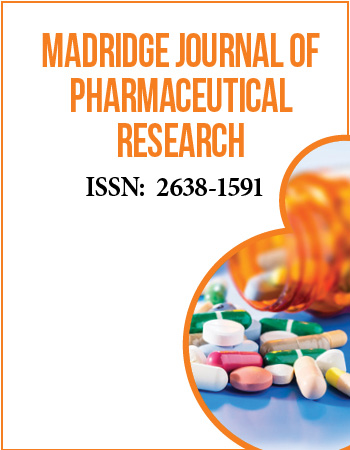2nd International Conference on Pharma & Nutrition, Health and Aging
August 1-2, 2019 Valencia, Spain
Oxidative Stress and Nutrition Profile in a Population of Patients with Breast Cancer in Western Algeria
1Laboratory of Biology of Development and Differenciation (LBDD), Department of Biology, Faculty of Science, University of Oran, Algeria
2Laboratory of Team Environment Modeling and Prediction for the Heath of Populations (TIMC), Faculty of Medicine, France
3Laboratory of Pathology Regional Military Hospital and University of Oran (HMRUO), Algeria
4Laboratory of Anatomy and Pathological Cytology Hospital Gui De Chauliac, France
5Laboratory of Adaptation and Pathogenesis of Microorganisms (LAPMO), France
Breast cancer BC is the most common cancer in women worldwide, in particular in Algeria where it occupies the first place in term of incidence and mortality. The objective of this thesis is to estimate the risk factors of breast cancer among women in the West of Algeria. A case–control study of nutrition and breast cancer was conducted with 191 women of which 77 breast cancer cases and 114 control subjects to determine the relationships between leptin concentrations, lipid alterations, oxidant/antioxidant status, In vitro lipoprotein oxidizability and fatty acid composition in breast cancer. Glucose, insulin, leptin, lipids, fatty acids, markers of oxidant status hydroperoxides, carbonyl proteins, conjugated dienes and markers of antioxidant status vitamins A, C, E, erythrocyte activities of the enzymes superoxide dismutase SOD, catalase, glutathione peroxidase, glutathione reductase and the serum total antioxidant status ORAC were investigated in breast cancer patients and in control women. Our findings showed that insulin, leptin, triglyceride, cholesterol and LDL-C concentrations were increased in patients compared to controls. ORAC and vitamin C and E values were lower while plasma hydroperoxide, carbonyl proteins and conjugated dienes levels, SOD and glutathione peroxidase activities were higher than in controls. Fatty acid composition was altered with high saturated fatty acids and low polyunsaturated fatty acids. There were significant positive correlations between leptin concentrations and LDL-C, hydroperoxides, carbonyl proteins, SOD activity, conjugated dienes levels and oxidation rate and significant negative correlations between leptin and ORAC, lag time and polyunsaturated fatty acids in patients. The multivariate analysis showed the significant interaction between the markers of the antioxydantstatut, the lipid metabolism, the age of the menopause, the lifestyle and the genetic predisposition and breast cancer. In conclusion, this study suggested that breast cancer is associated with lipid alterations and enhanced oxidative stress linked to high leptin levels. The age of the menopause, the lifestyle and the genetic predisposition are predictive factors of BC.
Keywords: Breast cancer, Fatty acids, Leptin, Lipids, Lipoproteins, Oxidative stress.
Biography:
Bensaber Hayette Senia is a researcher and a lecturer class B who provides two modules in Immunopathology and Techniques of Genetics and Cancer in the Department of Applied Molecular Genetics at the Faculty of Science of Nature and Life University of Science and Technology of Oran Mohammed_Boudiaf USTOMB. She is a part of a research team specializing in embryogenesis and oncogenesis in a Laboratory of Developmental Biology and Differentiation LBDD. She has published several scientific articles, one of which is entitled Molecular Detection of Epstein Barr Virus in Women with Breast Cancer in West Algeria in the Journal of Cancer Therapy.


